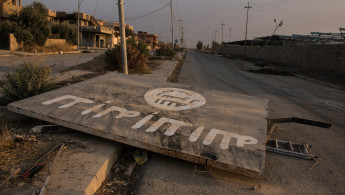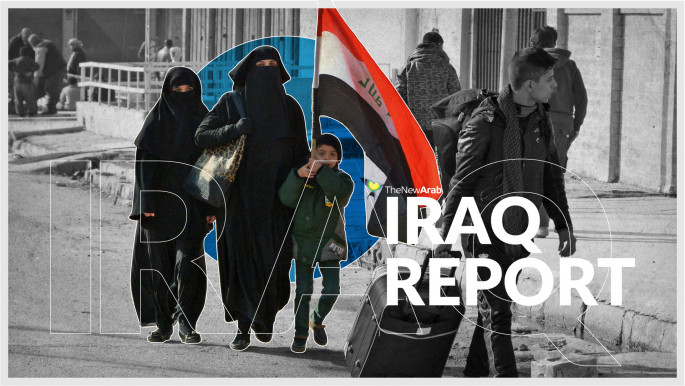The Iraq Report: Islamic State grows in power amid coronavirus outbreak
As Iraq continues to grapple with a power vacuum in its politics and an outbreak of the coronavirus that could be several orders of magnitude more severe than the authorities in Baghdad are letting on, the forces of the Islamic State (IS) are once more on the march.
In the past month, IS have orchestrated a number of deadly attacks against Kurdish and Iraq forces, as well as being behind a deadly mission that killed American troops.
IS is finding fertile ground in which to revitalise and rejuvenate due to a number of factors, including government mishandling of a protest movement as well as the ongoing conflict between Iran and the United States that has led to deadly attacks between the two and their proxies in recent months.
There is no sign of tensions easing between Washington and Tehran and Iraq will continue to be a battleground for them to contest regional supremacy.
Islamic State making a comeback
The Islamic State group who just a few years ago conquered a third of Iraq and almost toppled the government in Baghdad before being defeated in 2017 appears to be making a gradual comeback.
In the past month alone, IS has been responsible for a number of deadly attacks in Iraq that have claimed the lives of dozens of security personnel from several countries and different military organisations.
 |
IS is finding fertile ground in which to rejuvenate due to a number of factors, including government mishandling of a protest movement as well as the ongoing conflict between Iran and the US |  |
The Iraqi defence ministry announced on Monday that one Iraqi soldier had died and 23 IS operatives were killed during an operation backed by the US-led coalition against an IS hideout in the oil-rich disputed city of Kirkuk in Iraq's north.
Social media accounts associated with IS confirmed the raid but claimed "dozens" of Iraqi soldiers died in the attack while downplaying their own casualties without providing figures.
A day before the raid, an IS sniper gunned down an Iraqi police officer who was manning a checkpoint in Hawija, one of the districts belonging to the larger Kirkuk provincial area. Iraqi federal police forces are frequently targeted due to their association with the Badr Organisation, a Shia militant outfit with close ties to Iran's Islamic Revolutionary Guard Corps (IRGC).
The slaying of the police officer was preceded last Thursday by another IS attack in Tuz Khurmato that claimed the lives of two Popular Mobilisation Forces (PMF) militiamen, an Iraqi government-sanctioned but IRGC-backed paramilitary formation.
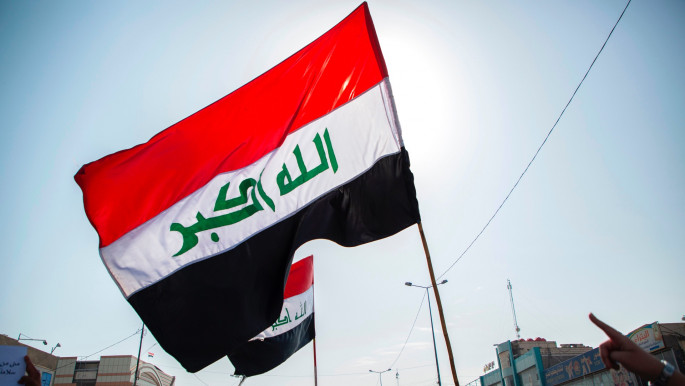 |
|
| Read more: The Iraq Report: Can new PM-designate Kadhimi unite Iraq's fractured political scene? |
Two days before the attack on the PMF, two Kurdish Peshmerga fighters were killed in Kulajo, a small town in the Kurdistan Region near the Iraq-Iran border.
However, it was not exclusively Iraqi military and police formations who have been targeted by IS. In March, two US marines were killed during operations to root out IS militants from the Qara Chokh Mountains near Makhmour in northern Iraq.
Kurdish generals have complained about IS activities in the mountains near Makhmour since last year, and have branded operations to force IS militants out of the mountains as "useless" as IS forces always re-emerge the following day and continue attacks.
Experts have long warned of IS' resurgence if the root causes of why they arose in the first place were not tackled.
Ever since IS' defeat, the Iraqi government and its allies in Iran and the US have consistently failed to secure the mutual interests of the Sunni Arab population, and have turned a blind eye to the mass incarceration of Sunnis in "displacement camps" where torture, sexual violence, and forced disappearances are common.
Such actions allowed for a propaganda victory for IS militants who could then point to the Iraqi authorities as a sectarian government that has discriminated against Sunnis, an accusation that has plausible merit.
With the absence of an effective Sunni political representation that can fight for the demographic's rights within the legal framework of Iraq's political system, IS' promises of a "Sunni emancipation" continue to be alluring recruitment propositions to young Sunnis radicalised by the Shia Islamist-dominated Iraqi government's abuses.
 |
In the past month alone, IS has been responsible for a number of deadly attacks that have claimed the lives of dozens of security personnel from several countries and different military organisations |  |
The dual diversion of resources to combat a predominantly Shia Arab protest movement across much of Iraq's central and southern governorates that exploded last October as well as the ongoing coronavirus pandemic has further distracted from the fight to keep IS contained.
The Iraqi authorities failed to effectively utilise the years since IS' defeat to reconstitute a national identity for all Iraqis, irrespective of their ethno-religious backgrounds, and instead focused on further entrenching the status quo of political elites beholden to foreign interests, predominantly Iranian.
Read more: Dozens killed in clashes between Iraqi army and IS
Had the Iraqi establishment forged a new national consensus then IS would have conceivably been defeated by virtue of a dried well of radicalisation, as the roots for extremism would have been effectively combated by removing excuses for it to thrive. It would have also allowed for a more concerted response to the coronavirus pandemic which has seen other nations come together at a time of crisis.
With the present trajectory of the Iraqi political system in mind, it appears that this is unlikely to change and, with the neglect of Sunni Arab cities like Mosul during this pandemic, IS will continue to find recruits willing to fight the government while Shia Arabs protest that same government for its corruption and prioritising of foreign agendas over national sovereignty.
US places bounty on top IRGC operative
While the weakness of the Iraqi government is certainly to blame for IS clawing back some of its old strength, another reason is the ongoing turmoil in relations between the United States and Iran, the two powers who played the largest roles in organising Iraq's fightback against the militants in 2014.
The US offered a $10 million reward last Friday for information on senior Lebanese Shia militant Muhammad Kawtharani leading to the "disruption of the financial mechanisms" of the Lebanese Hezbollah.
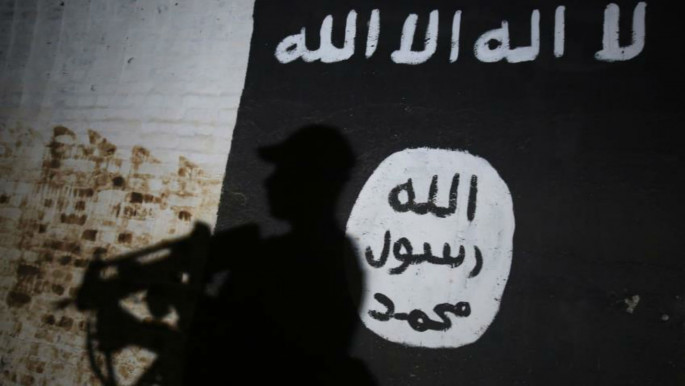 |
|
| Read more: Islamic State will exploit coronavirus, don't give them chance |
Washington is after Kawtharani because he has been assigned by the IRGC to reorganise the pro-Iran Shia groups that work within its orbit, and he is also being held responsible for setting up new organisations outside of the Iraqi PMF structure to insulate the Iraqi state from allegations it is working to disrupt the US with Iran.
A rocket attack on the Taji military compound near Baghdad in March was claimed by a new group called Usbat Al-Thaireen, or the League of Revolutionaries. This heretofore unknown group has a logo typical of IRGC-linked organisations that emulates the motifs utilised by Iran-backed Lebanese Hezbollah.
Read more: Iraq suspends, fines Reuters over coronavirus report
Their group's name in Arabic also bears a striking resemblance to the Asaib Ahl al-Haq militia, the Leagues of the Righteous, led by Qais al-Khazali, another Tehran-sponsored Iraqi Shia outfit.
Washington has offered complete confidentiality to any informers willing to come forward with critical information about Kawtharani, his networks, activities, and associates, and has even offered to relocate informers who come forward with vital intelligence.
Ever since the Donald Trump administration re-imposed US sanctions on Iran in 2018, Iraq has been once again transformed as a battleground between the two rival powers.
 |
IS will continue to find recruits willing to fight the government while Shia Arabs protest that same government for its corruption and prioritising of foreign agendas over national sovereignty |  |
A series of tit-for-tat exchanges between the two at the end of last year and the beginning of this one led to the US ordering a drone strike in January on IRGC Quds Force commander Qasem Soleimani and some of his top Iraqi proxies, including Kataib Hezbollah leader Jamal Jafar Al Ibrahim, better known by his nom de guerre Abu Mahdi al-Muhandis.
The assassination of Soleimani led to a retaliatory Iranian strike against a base housing American troops that led to no casualties. Ultimately, an open confrontation between the two countries was averted after both sides claimed victory.
However, while a conventional conflict may have been avoided, Iran has continued to ramp up its attacks against US targets in Iraq.
This has led the US military to deploy advanced air defence systems to protect bases housing American and allied troops from attacks by Iranian-backed Iraqi militants.
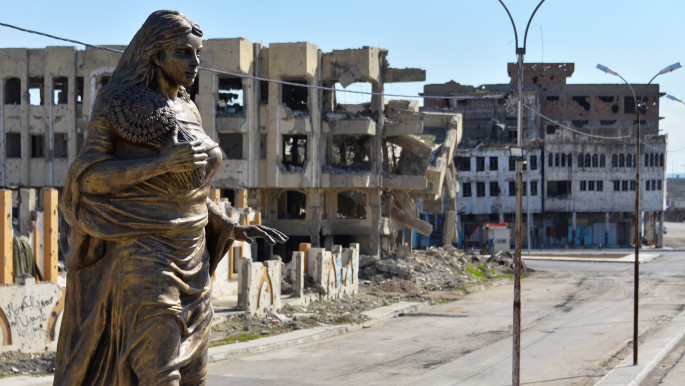 |
|
| Read more: Still recovering from Islamic State rule, Mosul's women lead the fight against coronavirus |
The American move to deploy missile systems can be seen not only as an attempt to protect US and allied soldiers and materiel, but also to ensure the US does not have to retaliate against Iran.
Washington has an interest in keeping tensions with Iran restricted to the sanctions regime as the Trump administration has no appetite for war when the president's foreign affairs component of his election manifesto lambasted US troops being deployed to fight in wars overseas.
With Trump facing re-election, and an angry electorate due to the effects of the coronavirus pandemic that has ravaged global markets and caused havoc in the American economy, it is likely this move is designed to ensure tensions between the US and Iran stay at a manageable level without risk of escalation.
This is an approach that will likely be emulated by Iran who is facing some of the highest coronavirus infection rates in the world and possibly their own domestic discontent.
There is no guarantee that this low intensity conflict will remain as such, and things will likely change if Trump is successful in clinching a second term particularly if the effects of the coronavirus are mitigated by next year.
